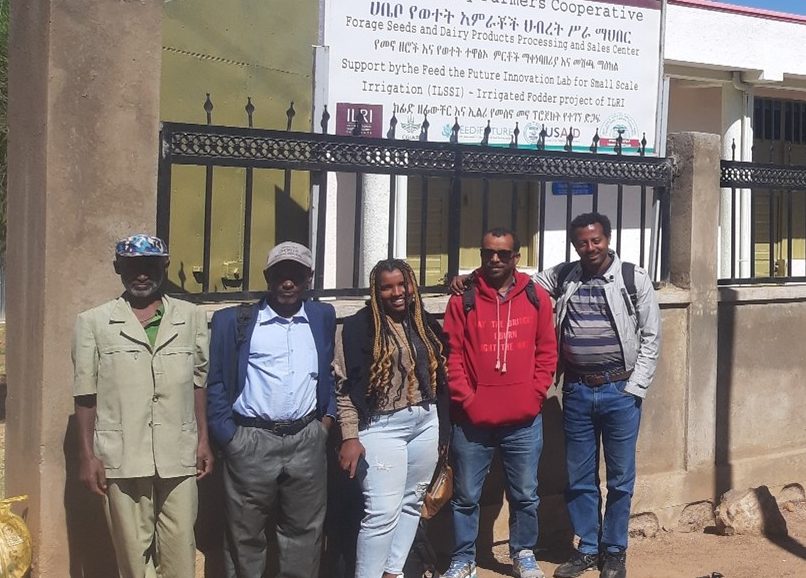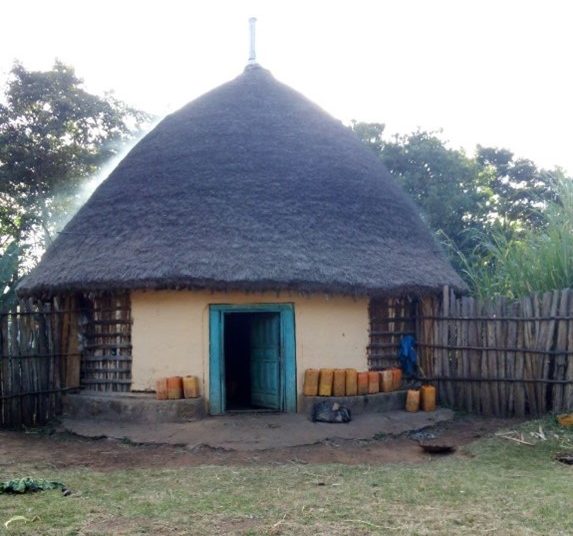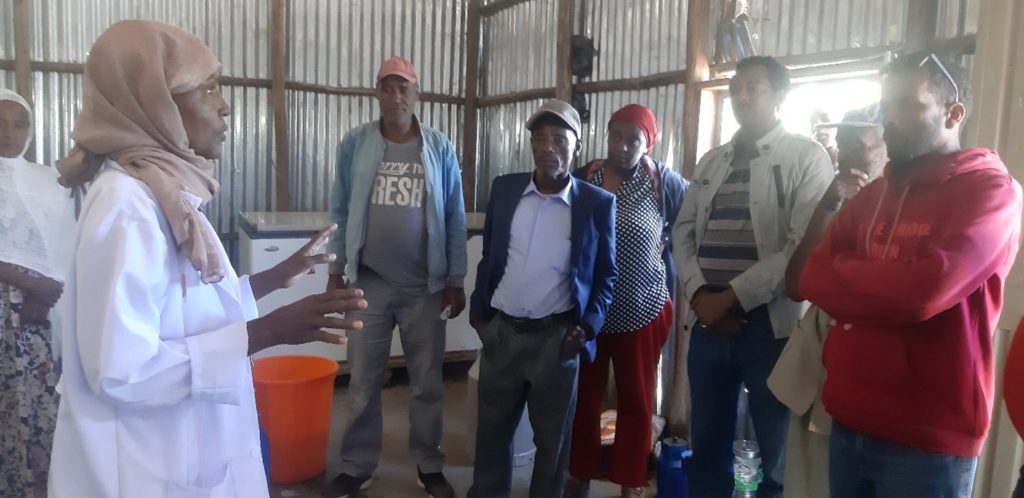The International Livestock Research Institute (ILRI) is undertaking research with three dairy cooperatives (Genet Lerobit, Habebo and Mishigida Etta). Genet Lerobit is in Amhara region, Northern Ethiopia and Habebo and Mishigida Etta are located in SNNPR. As much as there are similarities between these two locations, there are also variations in cultural practices, crops grown, livestock management and feeding practices. Moreover, the three coops vary in their level of growth and capacity, knowledge and experience in cooperative management and input-out markets.
Therefore, ILRI arranged experience sharing programs among these cooperatives with the aim of fostering their capacities through cross-learning and adopting new working practices and technologies that go well with the respective environments.
The visit
A six-day visit was arranged for 5 cooperative management teams of Genet Lerobit cooperative, from Bahir Dar zuria district, to the two cooperatives in SNNPR during the last week of November 2022. The visit was designed to share the indigenous and acquired knowledge and practices of Habebo and Mishigida Etta dairy cooperatives in green production, fodder marketing, milk handling, processing, and backyard and homestead management by farmers..

Visit to green fodder markets
Green fodder market is not well practiced in Bahir Dar zuria district, whereas there is a vibrant green fodder market in Durame, Kedida Gamela district where Mishigida Etta dairy cooperative is located. Farmers around the zonal town and neighboring villages bring in fresh forages (mainly desho grass, Napier grass, native grasses, sugar cane tops,) and seasonal feed like teff straw, maize stover and wheat straw) on the backs of donkeys, mule carts, human heads and backs every day. The buyers are livestock producers mainly from urban areas and farmers from villages who have animals but little or no forage plots.
Lemo unique house construction
Housing of Lemo community is unique in the region (and probably in the country too). The grass -thatched roof (keeps the house cool during the day and warm in the night), wood-rope interwoven ceiling, wood walls tightened with rope from enset or false banana (a drought tolerant and multi-purpose plant unique to the SNNPR), flower decorated homestead gives a unique pleasure to the residents and to anyone who visits the families.

Backyard and homestead management
At Jawe kebele of Lemo woreda individual farmers’ homesteads and backyards are fully vegetated and decorated. Ato Adinew Ayele, one of the many model farmers in Jawe owns crossbred dairy cows, which are well fed and produce milk for family consumption and income generation for the household. Adinew always seeks new innovations and works closely with development and research projects. His backyard is full of improved forages and other native forage varieties. He uses solar pumps to lift water from hand dug wells and irrigate his fodder and vegetable plots.

Bekelech is an innovative woman farmer in Jawe. Like that of Adinew, her backyard is also full of forages and vegetables and fruit spices, etc. Bekelech entertains many visitors due to her presentable and popular farm management and enthusiasm.
Visit to Mishigida Etta and Habebo dairy cooperatives – both supported by the ILSSI project
Habebo dairy cooperative was established in 2008 with 18 male and 30 female members and started operation by collecting about 5 liters of fluid milk. Nowadays, it has about 223 members and collects about 500 liters of fluid milk daily. Mishgida Etta dairy cooperative was established in 2011 with 50 female members. Currently, it has about 250 female members and collects about 100–150 liters of milk daily .
Habebo dairy cooperative produces cream, butter, buttermilk and cottage cheese for consumers in Hossana city and surrounding areas. It also produces yoghurt (Ergo) from buttermilk increasing income for the cooperative. Mishgida Etta produces yoghurt (Ergo), butter and cheese in their dairy product shop and new buildings which were built by the cooperative with the support of ILSSI project and stakeholders.

Visitors’ reflections
Green fodder marketing is a new practice for Bahir Dar zuria farmers, and the visitors appreciated the potential of such a market to change the lives of farmers. They noted that such markets would create job opportunities for farmers who want to sell forage as a cash crop. Visitors were encouraged by the competitive price (ETB 6.60/kg of fresh matter) at which green fodder is sold in the local market and vowed to promote it in their locality. They said, “When we go back home, we will teach fellow cooperative members how important it is to start an open fodder market, and link buyers and sellers.”
“We thank ILRI/ILSSI project for making this visit happen and giving us a chance to learn from our fellow farmers.”
Visitors stated that such markets would also create income generating opportunities for dairy producers who do not have land to grow forages and to landowners who can grow forages but have little or no animals.
They noted that both cooperatives are well organized and functioning properly, and appreciated the valuable information, saying,


